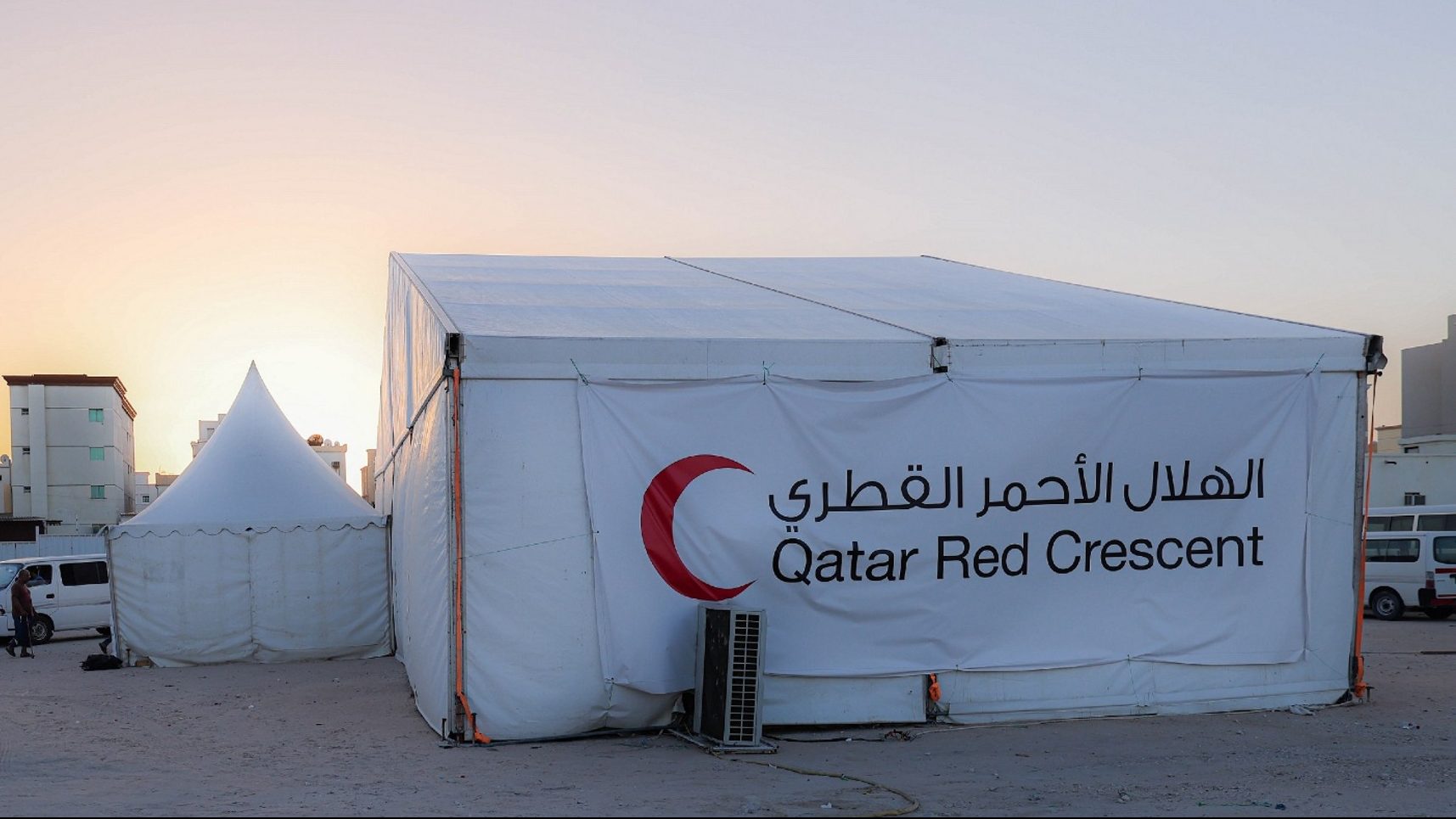More than 600 million people in Muslim-majority countries are observing Ramadan in 2024 without a sufficient food supply.
The Qatar Red Crescent Society (QRCS) has implemented a Ramadan Iftar project in 18 countries, delivering food parcels containing local staples to more than 234,000 beneficiaries throughout the holy month.
Albania, Lebanon, Afghanistan, Iraq, Yemen, Bangladesh, and Djibouti have been critical countries for the QRCS, which announced the project at the beginning of this month. The project will continue until the end of the year.
With the participation of Abdulaziz Mohamed Al Sahli, Qatari Charge d’Affaires in Albania, and in cooperation with the Albanian Red Cross, QRCS distributed food parcels to 500 vulnerable families at a total price of $20,000.
In Lebanon, QRCS aims to distribute 2,668 food parcels to families to ensure food security for one month.
In Afghanistan, QRCS personnel achieved phase 1 of the Ramadan Iftar project, with 550 food parcels distributed to displaced families in two provinces of Nangarhar.
Phase 2 will see QRCS personnel distributing 550 food parcels in two other locations in the city of Kandahar.
The $150,000 project is implemented with the Afghan Educational and Aid Organization and the Afghan Red Crescent Society (ARCS).
Each parcel contains 92 kg of food items such as flour, rice, vegetable oil, sugar, beans, dates, tea, and salt.
Despite ongoing humanitarian assistance, 17 million Yemenis are food insecure, and QRCS has launched a project to assist 42,000 people in the Yemeni cities of Lahij, Abyan, Taiz, Aden, and Sanaa.
The project was inaugurated in partnership with the Yemeni Red Crescent Society (YRCS) in Lahij, where 1,000 food parcels were distributed at remote and inaccessible Al Madaribah Wa Al Aarah district villages.
More than 600 million people in Muslim-majority countries are marking Ramadan this year without a sufficient food supply, with more than 200 million suffering from severe hunger, according to Islamic Relief.
A deadly combination of climate change, and war, has led to many Muslims around the world marking Ramadan without enough food.







